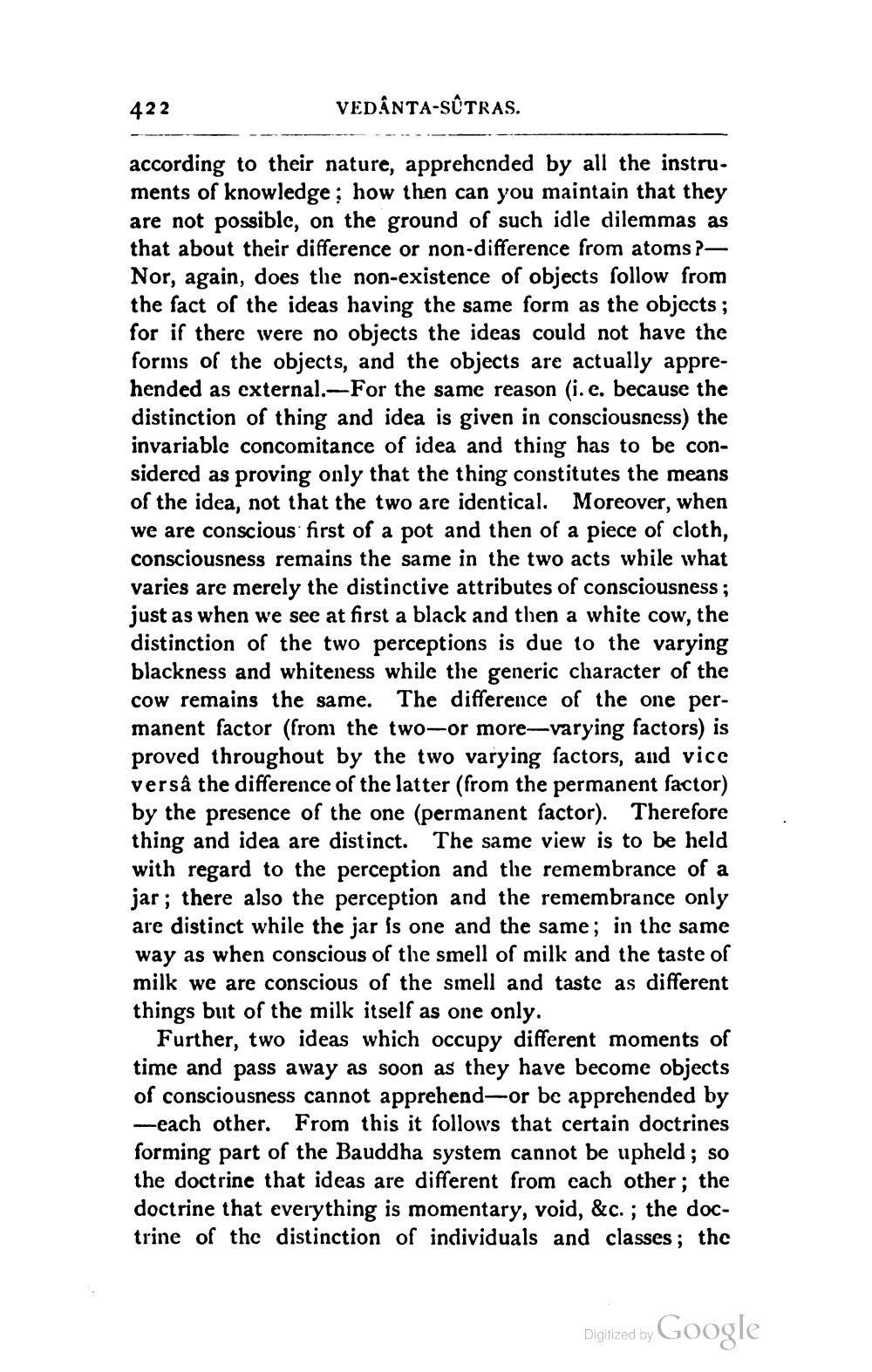________________
422
VEDÂNTA-SÛTRAS.
according to their nature, apprehended by all the instruments of knowledge; how then can you maintain that they are not possible, on the ground of such idle dilemmas as that about their difference or non-difference from atoms ?Nor, again, does the non-existence of objects follow from the fact of the ideas having the same form as the objects; for if there were no objects the ideas could not have the forms of the objects, and the objects are actually apprehended as external.- For the same reason (i.e. because the distinction of thing and idea is given in consciousness) the invariable concomitance of idea and thing has to be considered as proving only that the thing constitutes the means of the idea, not that the two are identical. Moreover, when we are conscious first of a pot and then of a piece of cloth, consciousness remains the same in the two acts while what varies are merely the distinctive attributes of consciousness; just as when we see at first a black and then a white cow, the distinction of the two perceptions is due to the varying blackness and whiteness while the generic character of the cow remains the same. The difference of the one permanent factor (from the two-or more-varying factors) is proved throughout by the two varying factors, and vicc versâ the difference of the latter (from the permanent factor) by the presence of the one (permanent factor). Therefore thing and idea are distinct. The same view is to be held with regard to the perception and the remembrance of a jar; there also the perception and the remembrance only are distinct while the jar is one and the same; in the same way as when conscious of the smell of milk and the taste of milk we are conscious of the smell and taste as different things but of the milk itself as one only.
Further, two ideas which occupy different moments of time and pass away as soon as they have become objects of consciousness cannot apprehend-or be apprehended by -each other. From this it follows that certain doctrines forming part of the Bauddha system cannot be upheld; so the doctrine that ideas are different from cach other; the doctrine that everything is momentary, void, &c.; the doctrine of the distinction of individuals and classes; the
Digitized by
Digitized by Google




